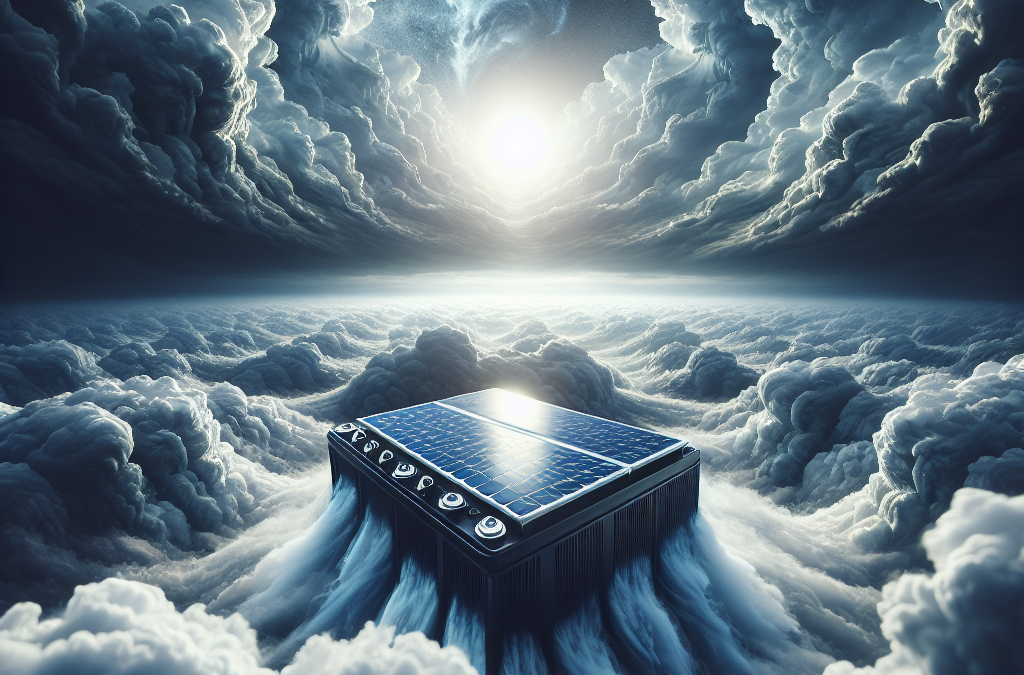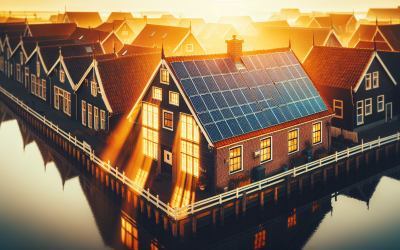Imagine this scenario: the power goes out in your neighborhood, but you’re not worried because you have a solar power system installed on your roof. However, have you ever wondered what exactly happens during a grid outage with a solar power system? In this article, we’ll explore the fascinating behind-the-scenes process of how a solar power system functions when the grid goes down, and how it can keep your home powered even during unforeseen circumstances. So, let’s shed some light on what happens when the lights go out!
Overview
Definition of a grid outage
A grid outage is a temporary loss of electricity supply from the main power grid. It can occur due to various reasons such as severe weather conditions, equipment failures, or planned maintenance by utility companies. During a grid outage, homes and businesses connected to the grid experience a sudden interruption in their power supply.
Role of a solar power system during a grid outage
A solar power system can play a crucial role during a grid outage. Unlike traditional electricity sources that rely on the power grid, solar power systems generate electricity directly from sunlight. This means that even during a grid outage, solar power systems can continue to provide electricity to homes and businesses.
Impact on Solar Power System
Loss of electricity generation
During a grid outage, the main impact on a solar power system is the loss of electricity generation. Without a functioning grid, the solar panels are unable to export excess electricity or receive electricity from the grid when needed. This can affect the ability of the solar power system to meet the electricity demands of the property.
Safety features during a grid outage
Solar power systems are equipped with safety features that ensure the safety of occupants and electrical workers during a grid outage. One important safety feature is the rapid shutdown functionality, which allows the system to quickly shut down in the event of a grid outage. This prevents the system from feeding electricity back into the grid and protects technicians working on the grid.
Battery backup usage
Many solar power systems are equipped with battery backup systems. These batteries store excess electricity generated by the solar panels and can be used during a grid outage. When a grid outage occurs, the battery backup system automatically kicks in, providing continuous power to critical appliances and minimizing the impact of the outage on the property.
Grid Reconnection Process
Steps involved in grid reconnection
Once the grid outage is resolved, the grid reconnection process takes place. This involves a series of steps to ensure a safe and smooth restoration of electricity supply. Utility companies and electrical technicians work together to reconnect the property to the grid.
Testing and inspection
Before the solar power system is reconnected to the grid, it undergoes thorough testing and inspection. This ensures that the system is in proper working order and complies with all safety standards. Electrical technicians check the integrity of the system, including the solar panels, inverters, and wiring, to ensure that there is no damage or faulty components.
Ensuring system functionality
Once the solar power system passes the testing and inspection phase, it can be safely reconnected to the grid. Electrical technicians verify that the system is functioning properly and that electricity can flow in both directions – from the grid to the property and from the solar panels to the grid. This ensures that the solar power system can continue to operate seamlessly even after the grid reconnection.
Potential Damage to Solar Power System
Surge damage from grid restoration
During the process of grid restoration, there is a risk of power surges that can potentially damage the solar power system. Power surges can occur when the grid power is restored suddenly and without proper voltage regulation. These surges can overload the system and cause irreversible damage to the solar panels, inverters, and other components.
Overloading and system failures
Another potential damage during a grid outage is overloading of the solar power system. If the property’s electricity demand exceeds the capacity of the solar power system, it can lead to overloading, system failures, and possible damage. It is important to properly size the solar power system to meet the electricity demands of the property and avoid overloading during grid outages.
Maintenance and Precautions
Preparation for grid outages
To mitigate the impact of grid outages on a solar power system, it is important to take certain maintenance and precautionary measures. One such measure is to ensure that the solar power system is properly maintained and regularly inspected by qualified professionals. This includes cleaning the solar panels, checking the connections, and verifying the performance of the system.
Regular maintenance of solar power system
Regular maintenance of the solar power system is essential to keep it in optimal condition and prevent any potential issues during grid outages. This includes cleaning the solar panels to remove dust and debris, checking for any signs of damage or wear, and ensuring that all connections are secure. Regular maintenance helps identify and address any issues before they escalate and impact the performance of the system.
Monitoring system performance
Monitoring the performance of the solar power system is crucial during grid outages. By monitoring the system’s performance, any anomalies or issues can be detected early on and appropriate actions can be taken. This includes monitoring the electricity generation, battery backup usage, and overall system functionality. Timely monitoring helps ensure that the system continues to operate efficiently and effectively during grid outages.
Communication during Grid Outage
Notification from utility companies
During a grid outage, utility companies play a vital role in communicating the status and updates to their customers. They usually provide notifications about the outage, estimated restoration times, and any additional information relevant to the situation. These notifications help keep customers informed and aware of the progress being made in resolving the outage.
Alerting occupants about the outage
In addition to the notifications from utility companies, it is important for occupants of the property to be alerted about the grid outage. This can be done through various means such as text messages, automated phone calls, or email notifications. Effective communication ensures that occupants are prepared for the outage, can take necessary precautions, and are aware of any alternative arrangements that may need to be made.
Ensuring consistent communication
Consistent communication is key during a grid outage to keep all stakeholders informed and minimize confusion. Utility companies, electrical technicians, and occupants should have a clear line of communication to share updates, report any issues, and ensure the smooth restoration of electricity supply. This allows for a coordinated effort and ensures that everyone is on the same page throughout the grid outage.
Benefits of Solar Power during Grid Outages
Energy independence and reliability
One of the major benefits of having a solar power system during a grid outage is energy independence. With a solar power system, you are not solely reliant on the main power grid for electricity. Instead, you have the ability to generate your own electricity using sunlight, providing a reliable source of power even during grid outages. This independence gives you peace of mind and reduces your vulnerability to the uncertainties of the grid.
Reducing the impact of outages on daily life
Having a solar power system can significantly reduce the impact of grid outages on your daily life. With battery backup capabilities, you can continue to power critical appliances such as refrigerators, lights, and medical devices, ensuring that essential functions are not disrupted. This can be especially important for households with vulnerable individuals or businesses that rely on uninterrupted power supply.
Achieving cost savings
During grid outages, utility companies may implement emergency rates or fees for backup power options. By having a solar power system with battery backup, you can avoid these additional costs and potentially save money in the long run. Solar power systems also provide the opportunity to offset your electricity bills by generating your own clean energy, leading to further cost savings over time.
Conclusion
A grid outage can have a significant impact on electricity supply and disrupt daily life. However, with a solar power system, you can minimize the impact of grid outages and ensure a reliable source of electricity. By understanding the potential impact on the solar power system, following maintenance and precautionary measures, and taking advantage of the benefits it offers, you can enjoy energy independence, reduce disruptions during outages, and achieve long-term cost savings. Investing in a solar power system is not only environmentally friendly but also a practical solution to mitigate the effects of grid outages and ensure a more resilient electricity supply.









